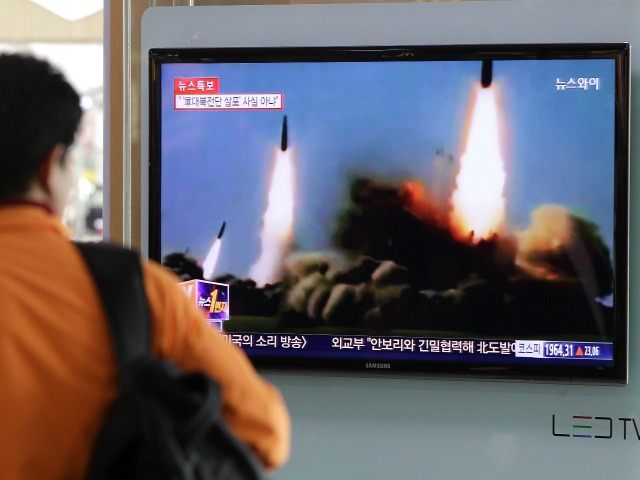South Korea stepped up its criticism of North Korea’s nuclear plans this week, with U.N. Ambassador Oh Joon calling for “extraordinary” measures against the North’s “nuclear blackmail.” South Korean President Park Geun-hye warned that Pyongyang faces “regime collapse” if they continue spinning up nuclear weapons production.
Ambassador Oh’s remarks came during a meeting of the U.N. Security Council on Monday, where the Associated Press reports he described North Korea’s recent nuclear bomb test, and ICBM test concealed as a satellite launch, “a clear threat to international peace and security and a blatant challenge to the international community.”
“If we go on business-as-usual vis-a-vis the DPRK’s repeated nuclear tests and advancement of missile capabilities, the entire world could fall prey to the DPRK’s nuclear blackmail,” warned Oh. “Extraordinary threat requires an extraordinary response.”
On Tuesday, South Korea’s president Park Geun-hye gave a nationally televised address to explain her decision to shut down the Kaesong joint factory complex. Opposition party critics argued that Kaesong represented the South’s best opportunity to influence North Korean culture, and complained that shutting down the factory would hurt South Korean businessmen and workers. North Korea responded to Park’s decision by expelling all South Korean workers from Kaesong, which is located north of the border, and putting the area under military control.
Park’s televised address was characterized by the Associated Press as unusually blunt. She denounced the North Korean government as “merciless” and accused it of conducting an “extreme reign of terror” against its citizens. She accused Pyongyang of stealing most of the money paid to North Korean workers at Kaesong, replacing the South Korean currency with much less valuable North Korean money and store vouchers for employees.
Park also suggested North Korea would not be able to rely on the South for no-strings-attached financial aid in the future, and warned her government would take “stronger and more effective” measures against the North, if they did not abandon their nuclear program. She named North Korean dictator Kim Jong-Un several times during her address, which is considered unusually aggressive for South Korean leaders, especially female ones.
(North Korea has a history of launching sexist broadsides at Park, such as calling her a “dirty comfort woman.” Her calling Kim on the carpet by name is not going to sit well with Pyongyang.)
And Park did all this while North Korea was celebrating the birthday of Kim Jong Un’s late father, Kim Jong Il.
“The North Korean government can no longer survive while pursuing nuclear weapons. Such moves will only lead to their collapse,” South Korea’s president declared, as transcribed by the L.A. Times.
She added that her own country had to “face the painful truth that North Korea will not change on its own,” and asked South Koreans to rally around her policies, because “aiming the point of a sword back to us and splitting us up are things that must not take place.”
The L.A. Times cites opinion polls that show the South Korean public does seem to be standing behind their president’s North Korea policy, but by a fairly narrow margin of 47 to 44 percent.

COMMENTS
Please let us know if you're having issues with commenting.